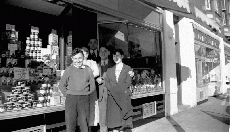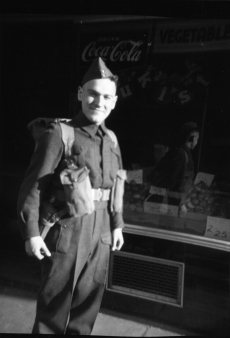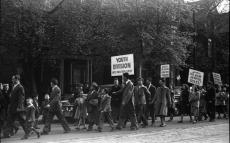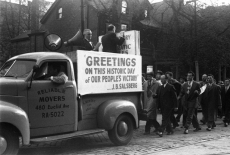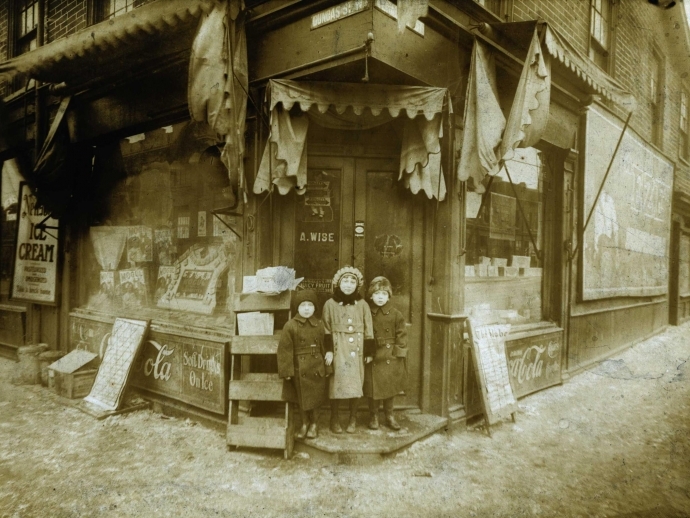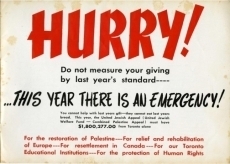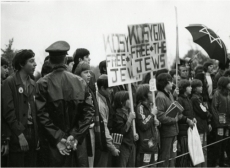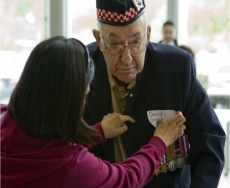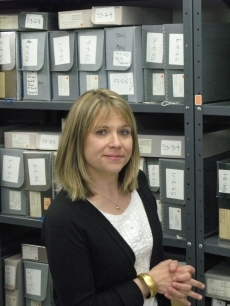Toronto's First Israel Day Parade Through the Lens of Dr. John E. Ackerman
The OJA recently acquired hundreds of photographs and films taken by Dr. John Ackerman (1921-2008). Born in Toronto to Jacob and Mindel Ackerman, Dr. Ackerman took up photography as a hobby in his teens. In 1939, he won a photo contest during the visit of King George VI by capturing a winning shot of the royal. With the prize money he purchased a better camera and darkroom supplies. Although he later became a dentist, he remained passionate about photography throughout his life and brought his camera with him, it seems, everywhere he went. For over 60 years he photographed family and community events, his neighborhood near Dundas and Elizabeth Street, trips to popular summer destinations such as Crystal Beach and Belle Ewart, his parent’s grocery store business, and his time in the Canadian military.
Included among these remarkable photographs are rare images of Toronto’s first Israel parade, which took place on Sunday May 16, 1948 – two days after David Ben-Gurion declared Israel’s Independence. The parade, sponsored by the United Zionist Council of Toronto, was both a celebration of Israel’s formation and a demonstration asking Canada to recognize the Jewish state and help it become a member of the United Nations. Dr. Ackerman was among the estimated 20,000 people who took part in this historic celebration, which moved along College Street to Maple Leaf Gardens where it culminated in a massive rally. The photos Dr. Ackerman took on this day are not only remarkable for their professional quality and composition, but also because the range of photographs he took (over 25 images) capture various facets of the day.
Looking through the images one is struck by the parade’s massive scale. Throngs of people can be seen not only taking part in the parade, but also lining the streets and watching from the windows of nearby buildings. Also seen is the large range of Jewish organizations that took part, including B’nai Brith, United Jewish Peoples Order, the Jewish Folk School, and a group of veterans who fought in Palestine during the First World War.
The photos capture the sense of excitement and pride felt by the community after its 2,000 year long struggle for a Jewish state: Israeli flags are seen displayed in the windows of Jewish owned shops, a man enthusiastically waves the newspaper announcement towards Dr. Ackerman’s camera, a marching band performs for onlookers, a truck used by S. Mirsky for his moving business is seen outfitted for the occasion with loud speakers and signs of jubilee, and both young and old community members can be spotted celebrating together. Taken together, these images bring to life the parade’s sights, sounds, and general atmosphere of celebration. This group of photos is a major acquisition for the Ontario Jewish Archives, as it documents the local response to an event of global significance.
Today, Toronto’s Jewish community continues to rally together in support of Israel in UJA Federation’s annual Walk With Israel. The Walk, which takes place this year on May 26th, raises funds to sustain UJA’s social welfare and educational programs in the state and provide aid to vulnerable regions. The photos Dr. Ackerman captured 65 years ago, serve as a reminder of the community’s continuing solidarity with Israel. Register here for this year’s walk: https://walkwithisrael.com/
